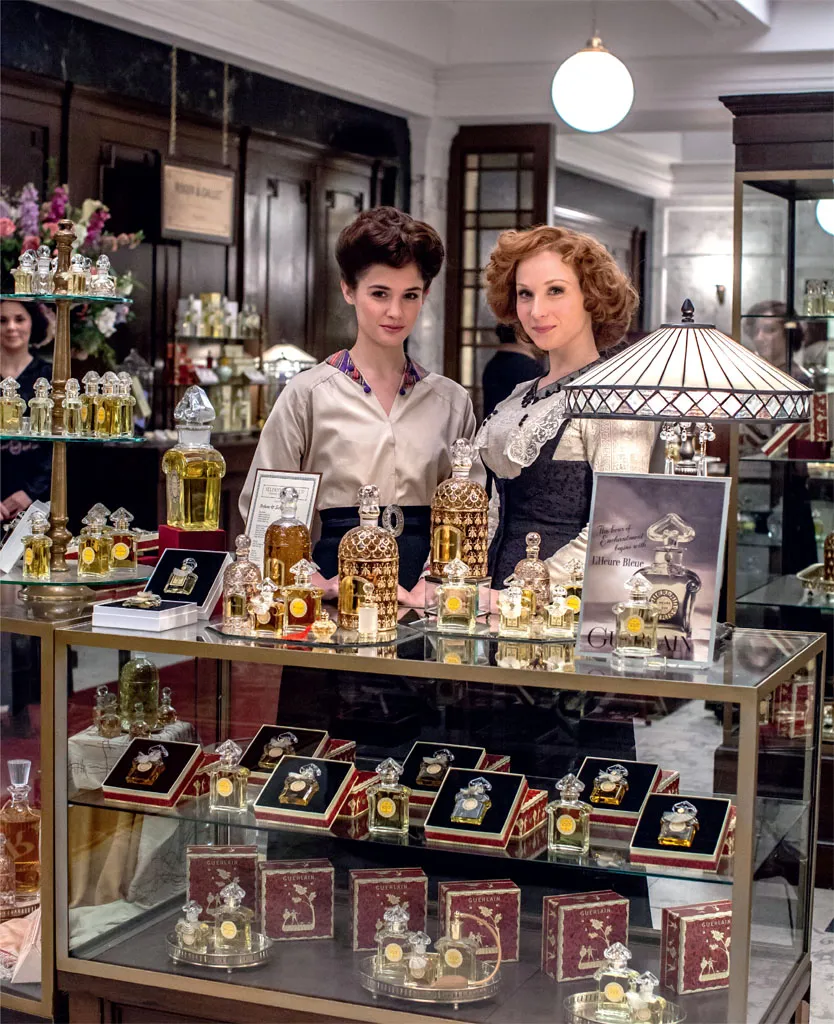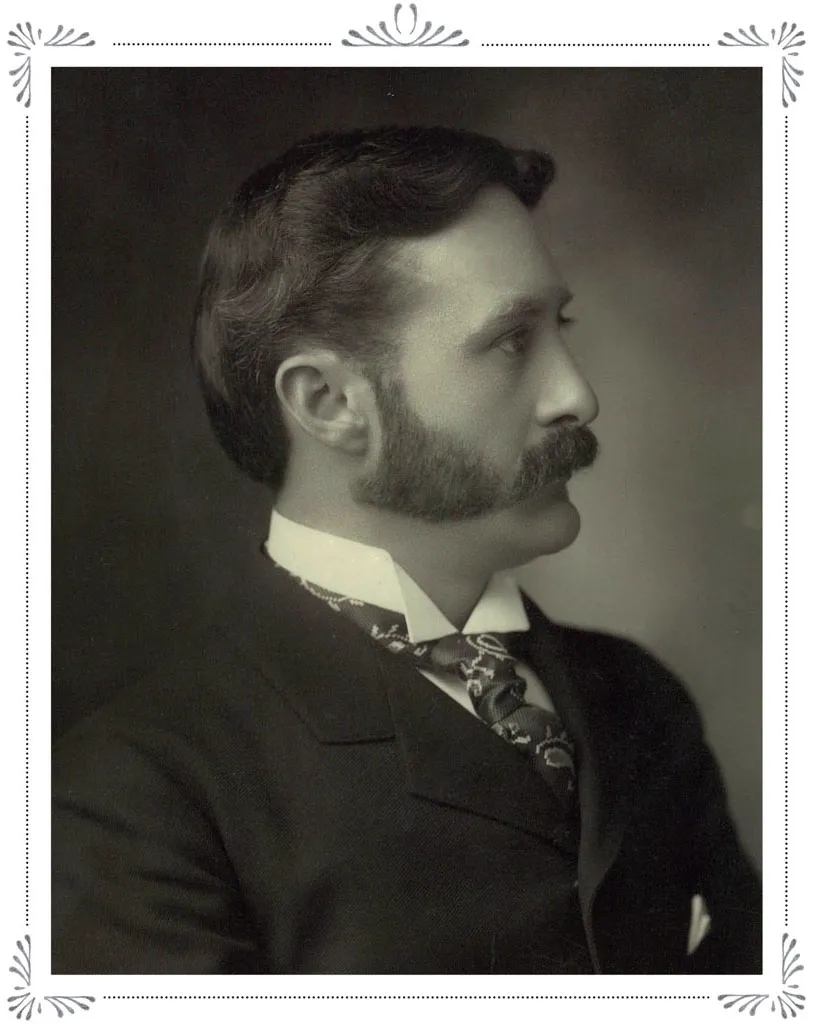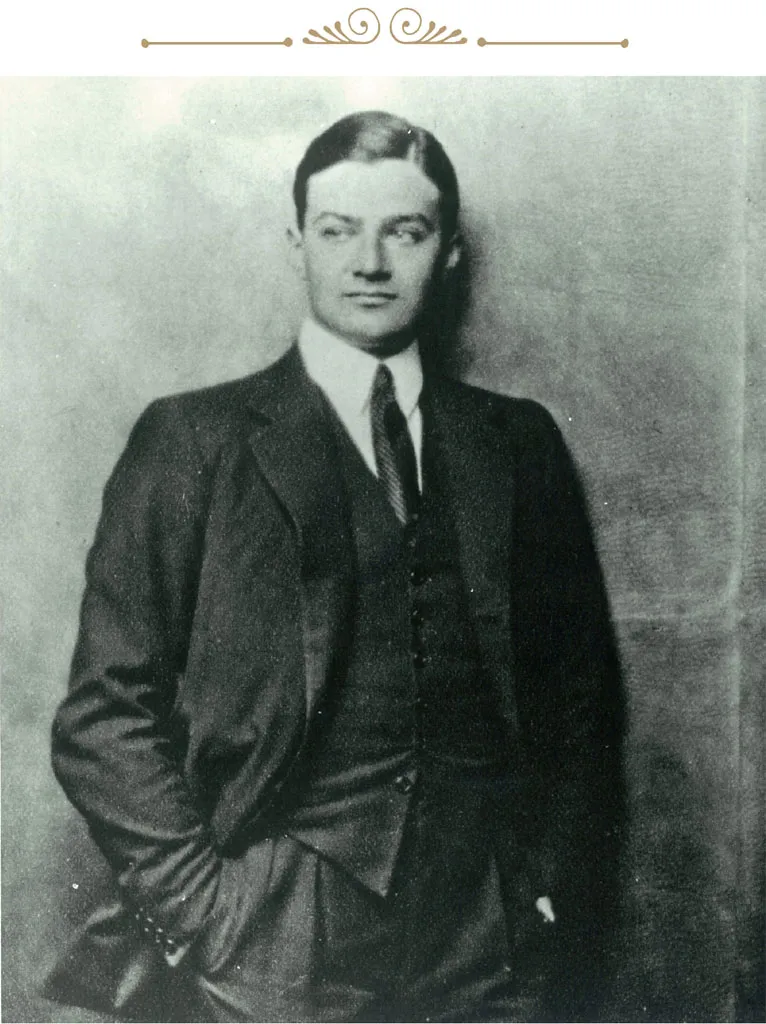![]()
Strong ideas for returning series are frustratingly elusive and when you happen upon one that you think might have legs, it feels like winning the lottery.
I was in a meeting back in 2010 with Laura Mackie and Sally Haynes, the commissioners at ITV at the time, and mentioned a book I’d just read by Lindy Woodhead, about the
man who founded Selfridges. I’d pretty much dismissed the story as being too ambitious to realise on a television budget – period department store on Oxford Street! – but Sally
jumped on the idea. Being an enthusiastic shopper herself, she loved the book and saw the potential. I rang Lindy’s agent that afternoon and secured the rights.
Like many producers, I’ve always found real people and true stories the source of the richest drama. My first producing job was adapting Alan Clark’s witty and poignant political
diaries, and this spurred me to look around at other larger-than-life real people for inspiration.
Harry Gordon Selfridge’s story immediately grabbed me, as he came from such humble roots to become one of the richest men in London, only to lose everything again. He dazzled London
society with his revolutionary vision for shopping and his lavish store on Oxford Street. There were many department stores, like Harrods, Debenham & Freebody and Liberty, but what marked
Selfridges out was that Harry was a real showman. He wanted to make his store one of the city’s attractions, one that you would go to see along with the Houses of Parliament and Buckingham
Palace. But he also had this really strong urge to self-destruct, and blew every penny he made on gambling and women, to die in poverty and obscurity.
It felt to me that the shop itself was also a prism through which to take a look at the beginning of the twentieth century. It was a time of great change and this is reflected in a fascinating
way through retail. The history of the humble lipstick alone tells you much about the sexual revolution that was underway for women.
So the hunt was on for a writer with the vision and experience to bring this story to life for television. I had worked with Andrew Davies for many years and sensed that this might be a rather
intriguing challenge for him. I’d been his script editor on productions such as his award-winning adaptation of Trollope’s novel The Way We Live Now and later as a producer on
his adaptation of Alan Hollinghurst’s The Line of Beauty, so we had a good shorthand to embark on a project of this scale. Andrew’s great skill is to make stories from the past
relevant to today’s audience. He has an almost uncanny ability to see what an audience will enjoy, what will make them laugh and cry.
Andrew read about Harry’s story and loved it, but he was clear that he wanted the freedom to create a fictional set of characters around the store that we could use as the platform for a
long-running series. At quite an early stage we mapped out the trajectory for the entire run of the series, framed by Harry’s own rise to fame and fall from grace. The joy of working within
television as opposed to film is the opportunity to follow characters in detail. We wanted to exploit this and tell really strong character-driven stories.
Andrew is hugely generous towards other writers, something that is probably borne of his experience in teaching creative writing. From an early stage, we discussed creating the series with a
team and, taking inspiration from writing rooms in the US, we brought two other writers, Kate Brooke and Kate O’Riordan, on board. Together with them and our two script editors, Siobhan
Finnigan and Ben Morris, we set up our own peculiar and very British system of working, which involves endless days of story lining, arguing about what our characters would or would not do,
interspersed by lavish lunches and drunken evenings.
After the first series, Andrew passed the lead writer baton on to Kate Brooke and the writers’ room has been topped up with exciting new writing talent. We all get to know each other
pretty well. We have an office within the studio set up in north London and this ensures that writers stay at the heart of the creative process. We spend a lot of time there and pop down to set to
grab a coffee and chat with the cast and crew.
The studio was once a carpet warehouse which over the past three years we’ve slowly tailored and spruced up to suit our needs. We have three stages which now house seven sets, and
alongside this runs a set of production offices and editing suites. In the full flow of production, we have a producer, a co-producer, a production office, four directors at work (at various
different stages of production), as well as busy production design, costume and make-up departments, a filming crew and a support team of caterers and the facility crew. On a busy filming day, we
might have a hundred extras and another hundred cast and crew on site, which makes simple daily events such as lunch a military operation.
It has been very rewarding for everyone involved in making the show to see how the stories have touched audiences both here in the UK and in the other 150 countries where the show is broadcast.
It’s also a great responsibility. We continue to move on five years between each series, something that brings fresh stories and social and historical context to each new run. Our cast seems
to get bigger, as do our studio sets, and the stories continue to get richer.
It’s a privilege to revisit our characters again and again, to see how life has changed from 1909 to 1914, and now to 1919. You can’t help but fall in love with them and root for
them as they encounter their trials and tribulations. The plan is to finish it all – at some point – with Harry’s fall from grace. It’ll be sad to say goodbye but it will
have been a roller-coaster ride.
Kate Lewis
Executive Producer
June 2014
![]()
THE EARLY YEARS
The ambitious entrepreneur who opened the doors to the iconic Oxford Street emporium in 1909 was a trail-blazer, a showman and a brilliant visionary. His ground-breaking flagship store and his revolutionary ideas were to change the face of shopping forever. But it was a humble beginning and a tragic past that proved the driving force in his life.
Harry Gordon Selfridge was born to Lois and Robert Selfridge in 1856, in Ripon, Wisconsin, where his father ran a general store. The youngest of three sons, Harry was just five when the American Civil War broke out and his father joined up to fight. He was never to see him again.
As a child, Harry was told his father had died a war hero, but that was in fact far from the truth. When Robert Selfridge was honourably discharged at the end of the conflict, in 1865, he chose not to return to his family, vanishing without word. Eight years later, he died after being hit by a train in Minnesota.
‘I don’t think Lois rammed down his throat what a war hero his father was but I think she would have had a mixture of shame and pride,’ explains Lindy Woodhead. ‘The American Civil War was a ghastly war, really vicious, and to later discover that his father hadn’t died a war hero, but had been discharged honourably and then had vanished, must have had a shattering effect on Harry. He must have become a driven man.’
Further tragedy struck the family shortly after the war, when Harry’s two older brothers, Robert and Charles, died, leaving Lois and Harry alone. Mother and son moved to Jackson, Michigan, where Lois took up a job as a primary school teacher. Although they were not in the absolute depths of poverty, Lois had to struggle to make ends meet on her salary of $30 a month (the equivalent of $440 today, or £260). She stopped short of taking in other people’s laundry, but in order to subsidise her wages from teaching, she would also embroider Valentine’s cards for pin money. She was a very proud, hard-working woman, with a huge work ethic.
‘Being the only son of a “widowed” mother had a profound effect on him,’ says Lindy. ‘He strived to be the male of the family, the protector and the provider, and all his life, Harry was protective of women, especially his mother.’
The bond between Harry and his mother – who he later described as ‘brave, upstanding and with indomitable courage’ – was unbreakable, and they were to live together until the day she died. Lois’s work ethic also rubbed off on her son and, as the man of the house, Harry was eager to contribute to the household income as soon as he could. At the age of ten, he got his first paper round, then a bread round and a holiday job carrying parcels – handing every penny of his earnings to his mother. At fourteen, he took on a full-time job as a book-keeper in a small local bank, where he earned $20 a month ($326 today, or £190).
But it wasn’t just an industrious nature that Lois instilled in her bri...








